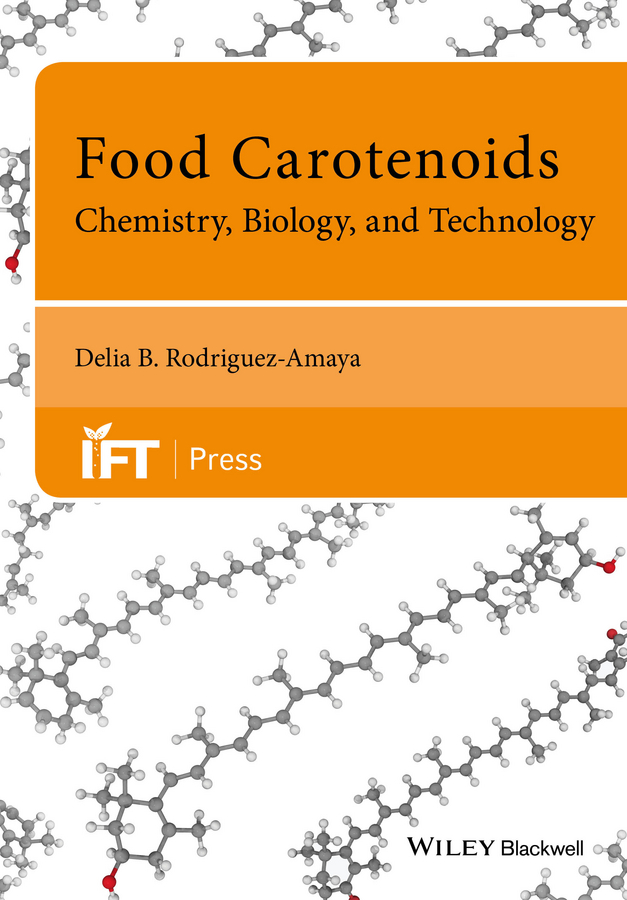Электронная книга: Delia Rodriguez-Amaya B. «Food Carotenoids. Chemistry, Biology and Technology»

|
Carotenoids were first studied as natural pigments, then as precursors of vitamin A, and then as bioactive compounds against chronic diseases. These compounds have been and continue to be the subject of intense research worldwide, now with an expanded scope. Food Carotenoids: Chemistry, Biology and Technology gathers all the important information about these major compounds which impact both food quality and human health. It integrates in one volume various aspects of food carotenoids, such as: Structures and physicochemical properties Biosynthetic pathways and metabolism Analysis and composition of foods Stability and reactions during processing Commercial production as food colorants and precursors of aroma compounds Bioavailability and health benefits Having worked with carotenoids in various aspects for 44 years, Delia Rodriguez-Amaya is uniquely placed to pass on her wealth of knowledge in this field. This book will serve as solid background information for professionals in Food Science, Food Technology, Nutrition, Agriculture, Biology, Chemistry and Medical Sciences, whether in the academe, industry, governmental and non-governmental agencies. Издательство: "John Wiley&Sons Limited"
ISBN: 9781118864333 электронная книга Купить за 15440.38 руб и скачать на Litres |
Другие книги схожей тематики:
| Автор | Книга | Описание | Год | Цена | Тип книги |
|---|
См. также в других словарях:
Antioxidant — Model of the antioxidant metabolite glutathione. The yellow sphere is the redox active sulfur atom that provides antioxidant activity, while the red, blue, white, and dark grey spheres represent oxygen, nitrogen, hydrogen, and carbon atoms,… … Wikipedia
Nutrition — The Nutrition Facts table indicates the amounts of nutrients which experts recommend to limit or consume in adequate amounts. Nutrition (also called nourishment or aliment) is the provision, to cells and organisms, of the materials necessary (in… … Wikipedia
Human nutrition — For aspects of nutrition science not specific to humans, see Nutrition. Human nutrition is the provision to humans to obtain the materials necessary to support life. In general, humans can survive for two to eight weeks without food, depending on … Wikipedia
Life Sciences — ▪ 2009 Introduction Zoology In 2008 several zoological studies provided new insights into how species life history traits (such as the timing of reproduction or the length of life of adult individuals) are derived in part as responses to… … Universalium
plant — plantable, adj. plantless, adj. plantlike, adj. /plant, plahnt/, n. 1. any member of the kingdom Plantae, comprising multicellular organisms that typically produce their own food from inorganic matter by the process of photosynthesis and that… … Universalium
Vitamin C — This article is about ascorbic acid as a nutrient; for its chemical properties, see the article ascorbic acid; for other uses, see the disambiguation page. Vitamin C … Wikipedia
